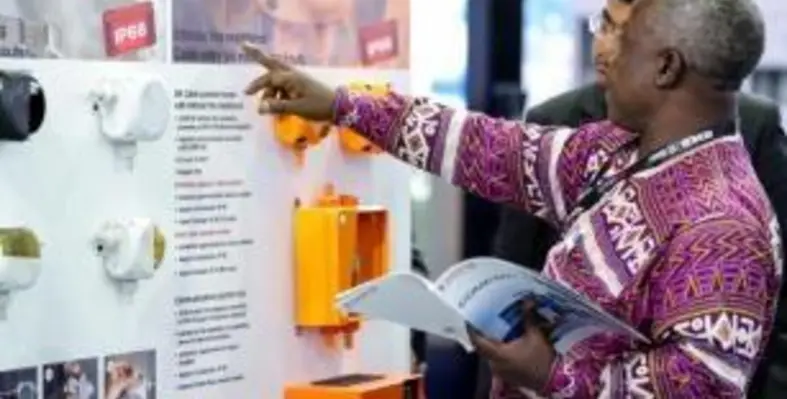African’s rich renewable sources are being underused even though the continent aims to connect 60mn new households to electricity grids by 2030
The under-utilisation claim was made by Wnaguli Charles Wainaina, the chief procurement officer of the Kenya Electricity Generating Co. Ltd, ahead of his buying visit to Middle East Energy, the mega global power event, which runs at the Dubai World Trade Centre from 3-5 March.
Mr Wataina, who is being hosted at Middle East Energy organised by Informa Markets, said recently the African power scene had undergone a transformation to a more renewable focus but needed to boost efficiency of the approach.
“There has been a paradigm shift in energy generation sources with increased focus and investment on renewable energy i.e geothermal, wind, solar and biomass. In my view, this trend to harness more renewable energy is informed by the fact that hydroelectric power generation, which has been the predominant energy source, has proved quite unreliable in Africa due to shrinking water resources, exacerbated by climate change. Similarly, mass burning of fossil fuels for power generation e.g. coal, diesel and gasoline is considered environmentally unfriendly due to pollution, carbon emissions, and is also costly for Africa’s economies which are largely constrained,” he explained.
The Kenyan official said much more could be done to reap the benefits of Africa’s natural resources.
“Research shows that Africa is rich in renewable energy sources such as wind, solar and geothermal, yet they are vastly underused,” he said. “These sources have proven to be more reliable, cheap and sustainable, and with the increased industrialisation in Africa, Governments are keen on ensuring the provision of competitively priced energy as an economic catalyst to sustain industrialisation and manufacturing. In addition, renewable energy sources are less polluting to the environment as they involve less carbon emissions and as such, Governments are focused on cutting emissions while increasing energy access to both citizens and investors.”
Mr Wataina’s comments come as the African Development Bank Group says the 54 countries that make up the continent need an average annual investment of between US$29-39b until 2025 to realise its ‘New Deal – Energy for Africa’. The New Deal aims to boost the number of African households who have access to electricity. Currently, only between 35-45 per cent of the continent’s population has a power connection.
Mr Wataina is at Middle East Energy looking to build contacts with manufacturers of strategic electrical equipment, spares and machine parts that support geothermal power generation. “Specifically, I am interested in establishing a wider supply market for electrical solutions which I consider strategic to our operations,” he explained. “I believe that through networking sessions with manufacturers/ dealers of this equipment, we shall be able to jointly work together to develop supply market solutions for my organisation, and for mutual benefit.”
The Kenya official is part of the exclusive Middle East Energy Connect platform initiated which brings together more than 300 global decision-makers and energy industry experts from around the world.












